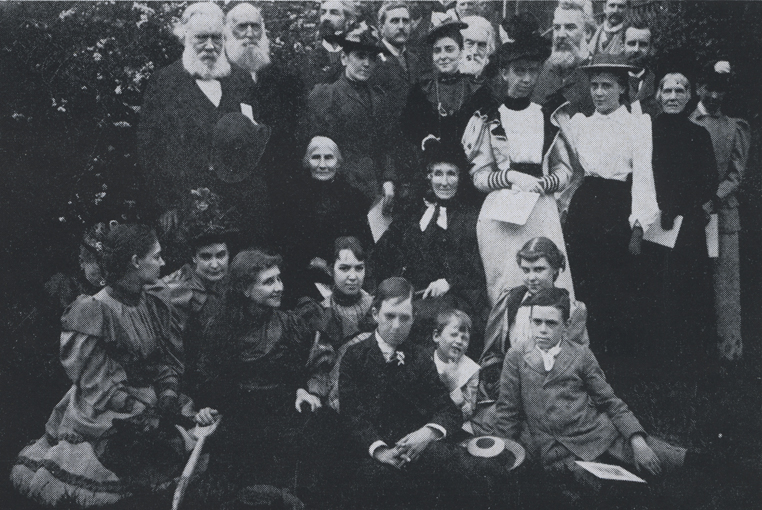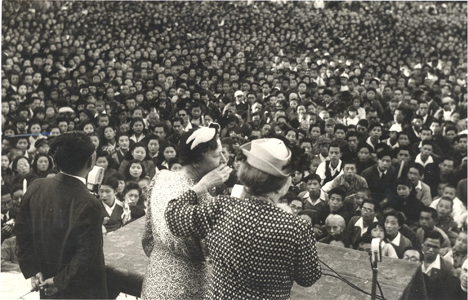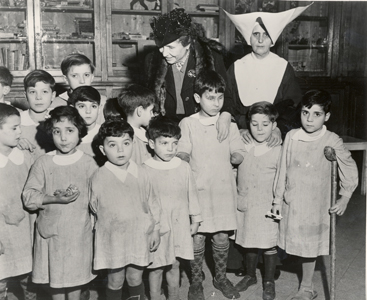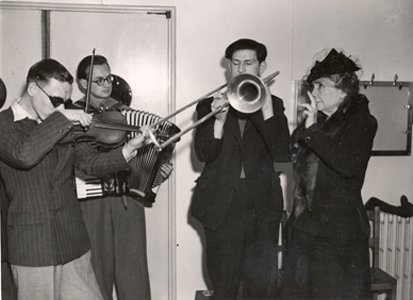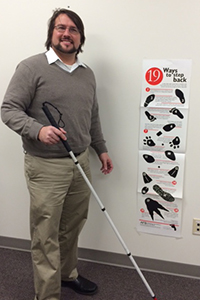Today, March 3rd, we salute 3 titans of American history: Alexander Graham Bell, Anne Sullivan Macy and Helen Keller.
Students who are blind or visually impaired should have the same educational opportunities and programs as their peers without disabilities. Through research, advocacy, and policy initiatives, AFB is working to create a world of no limits for students who are blind or have low vision. We speak up for children who are blind or visually impaired, to make sure every student has an equal opportunity to succeed.
Upcoming Opportunities to Learn More!
A friend of mine sent me a link to an episode of NPR's "This American Life" on Dan Kish. I had not heard it yet, though I do listen to that show often. I listened to the piece right away, and I thought I would share my take on the piece.
Recently, you may have read a story or seen it on the news about the little boy whose white cane was taken away from him because of behavior reasons. I wanted to take a minute to discuss this situation and why this is so wrong. The purpose of the white cane is to be a tool to allow a person or child who is blind or visually impaired independence.
According to 2013 data from the American Community Survey (U.S. Census Bureau, 2014), an estimated 668,000 American children and youth ages 5 to 21 are blind or have trouble seeing. Of those, over 159,000 (almost 24%) speak a language other than English at home.
The Institute for Education Sciences (IES) is the research arm of the U.S. Department of Education, responsible for sponsoring and conducting research and disseminating evidence to support education practices and policy. IES sponsors research through grant competitions run by its national centers, including the National Center for Education Research (NCER) and the National Center for Special Education Research (NCSER).
You might be excited or just ecstatic that the American Foundation for the Blind (AFB) has just launched the CareerConnect App with some of your favorite features of the CareerConnect resource center. Hold your applause and high-pitched sounds of jubilation for the full deal on this momentous occasion. Am I hyping this app? Oh, yes! But I will tell you that this launch is just the beginning of more great things to come.
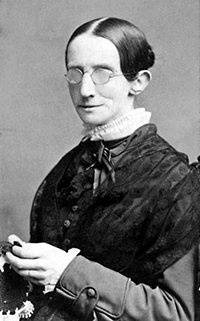
Ever heard of Laura Bridgman? Bridgman is generally acknowledged as the first deaf-blind child to be successfully educated. Here's an interesting article from Slate about her life titled "The Education of Laura Bridgman. She was Helen Keller before Helen Keller. Then her mentor abandoned their studies."
